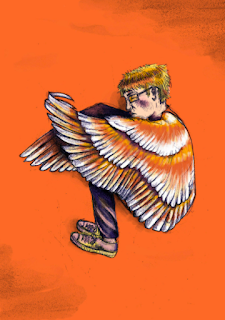Tony's Story by Leslie Marmon Silko - Summary
This short story is summarized in bullet points for no good reason. Events · It's a hot dry summer. Tony's friend Leon comes back from the army. He is drinking. · A state cop punches Leon in the face · Leon is admitted to the hospital with broken teeth and get stitches · Tony dreams about the cop who has white round eyes on a ceremonial black mask instead of a face · Leon gets better but wants revenge and Tony tries to dissuade him · Tony sees the cop in a gas station store and Leon says he is just as good as the cop · The cop follows them and they pull over. He makes them get out of the car. · Tony knows he can't look at the cop's eyes. He tries not to but then looks at ...
